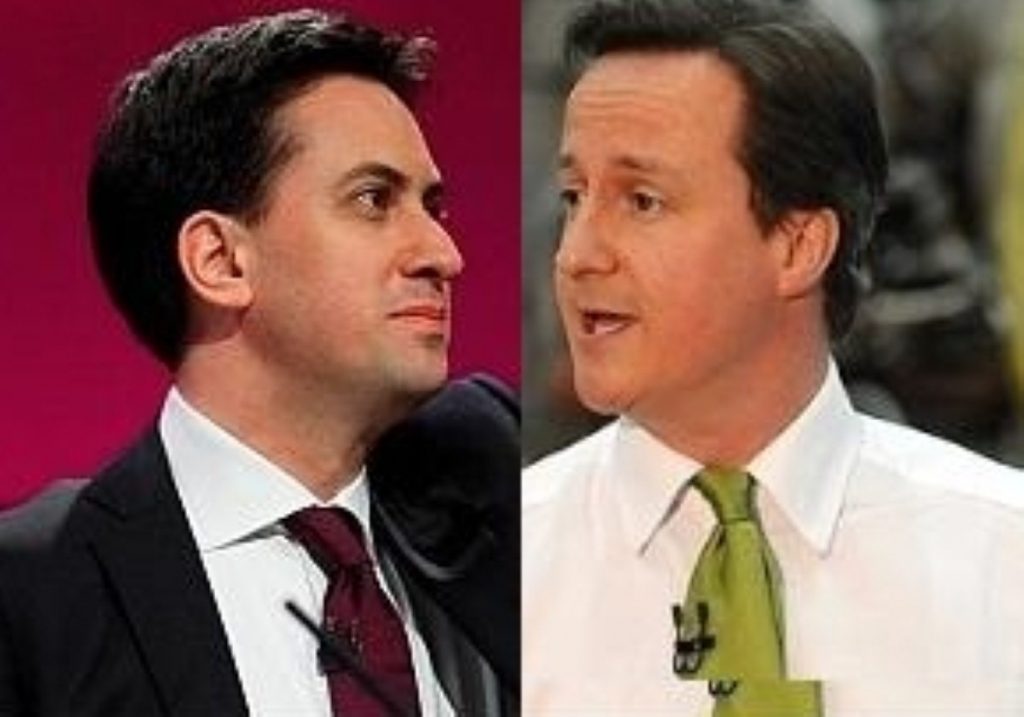Role reversal: Unions meet with Cameron following Miliband spat
By Ian Dunt
Trade union officials have met with the prime minister just as the leader of Unite fights a war of words with Ed Miliband.
The Downing Street event was the first official meeting between a Tory prime minister and union leaders since TUC general secretary Norman Willis met Margaret Thatcher during the miners’ strike in 1985.
It comes just as Labour leader Ed Miliband, whose party is dependent on union support for funding, smacked down comments from new Unite leader Len McClusky.


Writing for the Guardian, Mr McClusky called on unions to work with student activists in a bid to bring the cuts programme to a halt.
“Their mass protests against the tuition fees increase have refreshed the political parts a hundred debates, conferences and resolutions could not reach,” he said.
“The magnificent students’ movement needs urgently to find a wider echo if the government is to be stopped.”
Ms McClusky was keen to disassociate himself from Socialist Workers Party (SWP) banners, prevalent at demonstrations, demanding a general strike, but he remained open to the idea of wider cooperation in anti-cuts actions.
“While it is easy to dismiss ‘general strike now’ rhetoric from the usual quarters, we have to be preparing for battle,” he wrote.
“It is our responsibility not just to our members but to the wider society that we defend our welfare state and our industrial future against this unprecedented assault.”
The comments were quickly rejected by Mr Miliband’s camp, which is nervous about being daubed with the Red Ed moniker by the tabloid press.
“Ed warned about using overblown rhetoric about strikes in his conference speech and this is a case in point,” a spokesperson said.
“The language and tone of Len McCluskey’s comments are wrong and unhelpful and Ed Miliband will be making that clear when he meets him in the near future.”
Speaking on the World at One, Mr McCluskey played down the disagreement.
“Ed has got a particular job to do. I didn’t see it as slapping me down,” he said.
“He said it was unhelpful and he disagrees with me and I respect that.
“I have no doubt that when we get an opportunity to talk he will listen to what I have to say and I will listen to what he has to say.”
The McClusky piece was fiercely supportive of the student protests, which have been praised by some for their vigour and passion and condemned by others for the property damage and clashes with the police which took place.
“Students have to know that we are on their side,” Mr McClusky said.
“We must unequivocally condemn the behaviour of the police on the recent demonstrations. Kettling, batoning and mounted charges against teenagers have no place in our society.
“It is ironic that young people have been dismissed as apathetic and uninterested in politics – yet as soon as they turn out in numbers they are treated as the ‘enemy within’ in a way instantly familiar to those of us who spent the 1970s and 1980s on picket lines.”
Mr McClusky also had words of advice for Mr Miliband.
“Unless people are convinced not just that they are hurting – not hard to do – but also that there is a coherent alternative to the Cameron-Clegg class-war austerity, then getting millions into action will remain a pipe dream,” he said.
“A key part [of the alternative] must be a rejection of the need for cuts. ‘What do we want? Fewer cuts later on’, is not a slogan to set the blood coursing.”
Bob Crow, RMT general secretary, was quick to highlight disagreements in Number 10 about the spending cuts programme.
“Today we warned the prime minister that next year promises to be even bleaker for millions of families and their communities as the spending cuts bite hard and hit jobs and services,” he said.
“We made clear to the prime minister our strong view that the spending cuts would both be socially divisive and economically dangerous.”
Student activists have conducted a series of four major demonstrations in the last two months, as plans to triple tuition fees made their way through parliament.
Organisers are currently mapping out how the nascent movement will continue its fight after the New Year.









